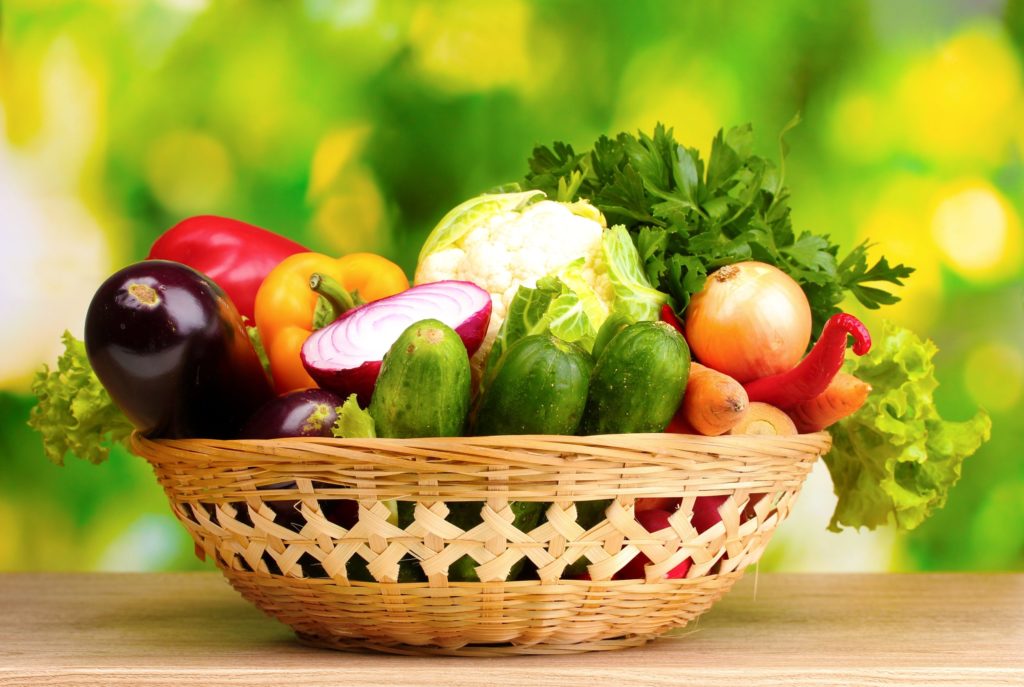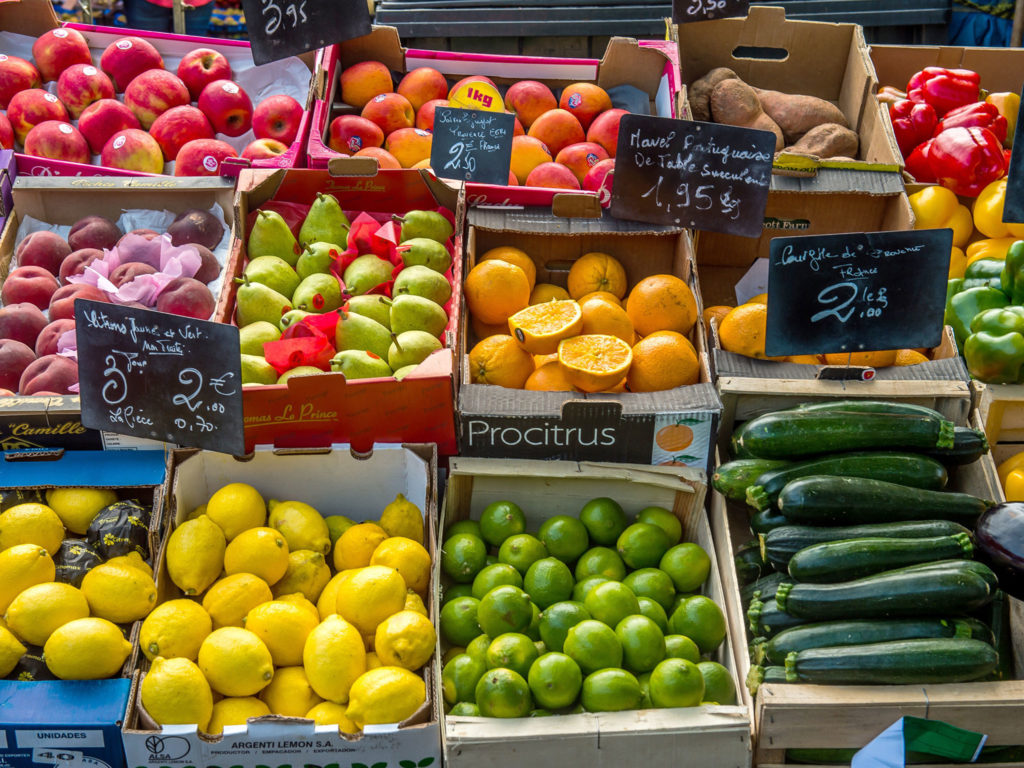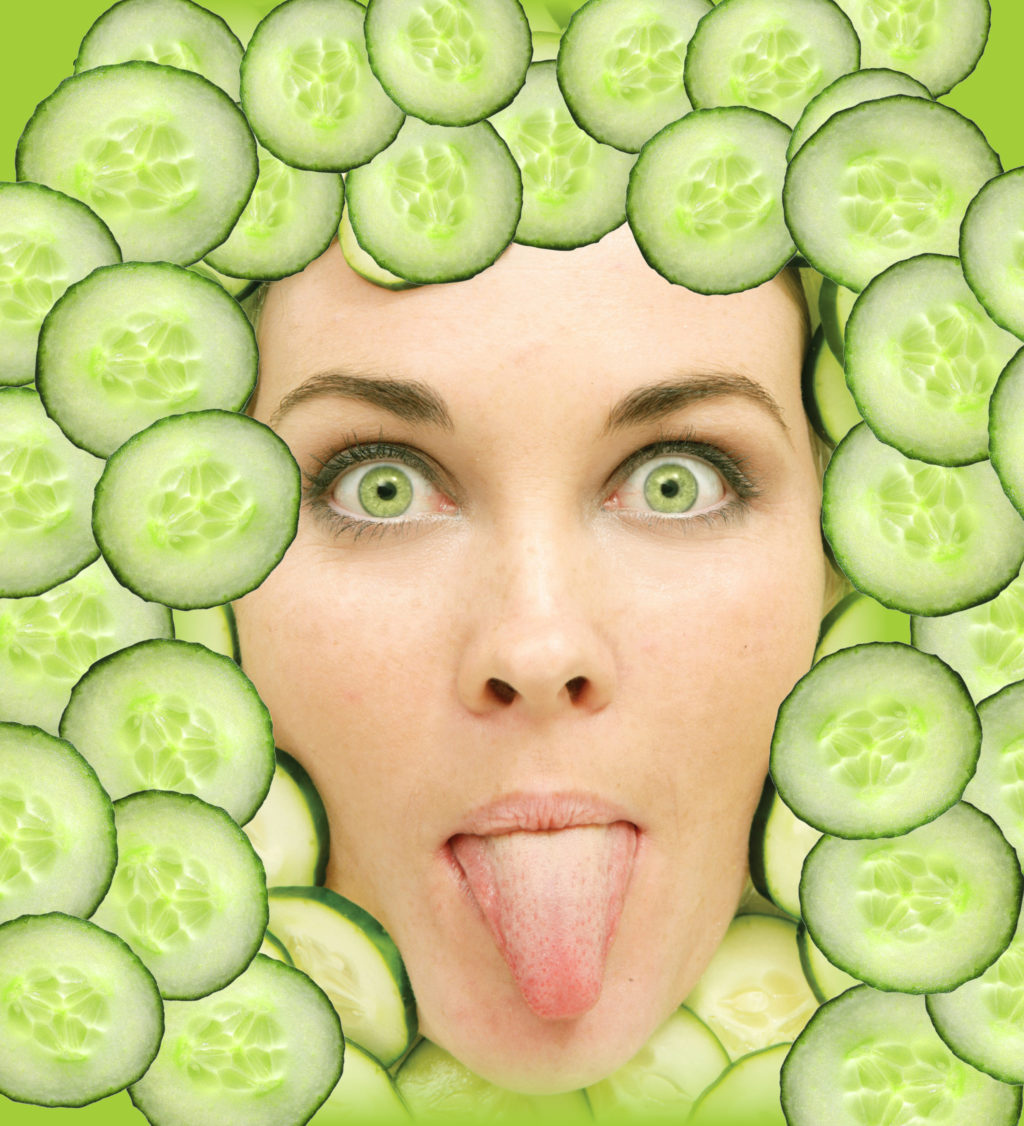Cucumber has many health benefits and virtues. Rich in water, this vegetable provides vitamin C, K, and potassium. Cucumber is a very example of a refreshing vegetable. Besides, it is so often consumed fresh; so, one almost forgets that it is also eaten cooked, a bit like the zucchini. Our American varieties are rather short and stocky, while European cucumber is long and thin. Cornichon, meanwhile, generally refers to a cucumber picked before its full growth and used as a condiment after marinating it in vinegar.
There is, however, a “real” pickle: it is a specific variety of cucumber, the gherkin, whose natural size reaches only a few centimeters.
Cucumber active ingredients and properties
For vegetables in general
Several epidemiological studies have shown that high consumption of vegetables and fruits decreases the risk of cardiovascular diseases, certain cancers, and other chronic diseases. Some mechanisms of action, have been proposed to explain these protective effects; The presence of antioxidants in vegetables and fruits could play a role.
For cucumber and pickle
Antioxidants (cucumber). Antioxidants are compounds that protect the body’s cells from damage caused by free radicals. The latter are very reactive molecules that would be involved in the development of cardiovascular diseases, certain cancers, and other diseases related to aging.
Phenolic compounds: Studies have demonstrated the presence of:
Phenolics: with a slight antioxidant activity in cucumber, this antioxidant power is, however, lower than that of other frequently consumed vegetables such as red pepper, broccoli, carrot, spinach, cabbage, yellow onion, celery, potato, and lettuce. Nevertheless cucumber, due to its high availability and the frequency of which consumed, can contribute to the supply of antioxidants in the diet.
Peroxidase: Researchers have discovered in the peel of the cucumber an antioxidant protein called peroxidase. Its effect on health has not yet been studied. However, cucumber peroxidase would be comparable to horseradish peroxidase, another plant.
Animal research has shown that horseradish peroxidase can lower blood cholesterol, triglycerides, and glucose and protect some tissues from oxidation. However, unclear to what extent these properties, applied to cucumber peroxidase and can be transposed to the human organism.
Water (cucumber): According to the Canadian Nutrient File of Health Canada, more than 95% of the weight of raw cucumber is water. This particularity makes it a refreshing vegetable while having a very low caloric value, which an asset for people who monitor their weight.

The virtues and health benefits of a vegetable low in calories and rich in water
- Cucumber provides very few calories. A serving of 100 g of cucumber provides only 16 calories.
- Its high water content – about 95% – explains why it is so low in calories. Although it does not replace water, cucumber contributes to hydration and rehydration.
- Cucumber is a natural diuretic, often prescribed by naturopaths: the increase in urination is mainly caused by the water it contains rather than by a particular component.
- Cucumber can help reduce the appearance of puffy eyes, especially due to the water and caffeic acid that this vegetable contains.
- Its juice contains alpha-hydroxy acids which increase the effectiveness of several cosmetic products, including facial masks.
- A serving of 100 g of cucumber also provides vitamins and minerals, including:
- Vitamin K: 10% Recommended Daily Intake
- Potassium: 5% Recommended Daily Intake
- Vitamin C: 4% Recommended Daily Intake
- Magnesium: 3% Recommended Daily Intake
- Vitamin A: 2% Recommended Daily Intake
- Calcium: 1% Recommended Daily Intake
- Iron: 1% Recommended Daily Intake
How to Prepare Cucumber
- The cucumber eaten especially in a salad, cut into very fine slices. It can also be disgorged with salt. It must always be well chewed, in order to be digested more easily.
- In several countries, such as India or Greece, it is a staple food; grated, mixed with yogurt and herbs and served – it is Greek tzatziki.
- Steamed, it is very digestible and accompanies well the white meats or the fish.
Cucumber most important nutrients
See the meaning of the classification symbols of nutrient sources
Source Copper: Raw cucumber (without peel) and dill pickle are sources of copper. As a constituent of several enzymes, copper is necessary for the formation of hemoglobin and collagen (a protein for tissue structure and repair) in the body. Several enzymes containing copper also contribute to the body’s defense against free radicals.
Source Vitamin K: Raw cucumber (with peel) is a source of vitamin K. This vitamin is necessary for the synthesis (manufacture) of proteins associated with the coagulation of the blood (as much to the stimulation of the inhibition of the coagulation Blood).

Cucumber precautions
Pickled gherkins and sodium (salt)
Some people are recommended a diet restricted in sodium because of a health problem (hypertension, heart failure, certain kidney diseases, etc.). All marinated foods, including gherkins, discouraged in these situations since they are generally high in sodium. According to the Canadian Nutrient File of Health Canada, 100 g pickled gherkins (about six small sweet pickles or three small dill or dill pickles) contain 939 mg of 1,282 mg sodium.
Nutrient intake baseline data indicate that adequate sodium intake in healthy adults is 1500 mg per day. These gherkins fill almost all the sodium intake of a full day! There are, however, “low sodium” gherkins, which are a better choice with only 18 mg of sodium for the same servings.
Cucumber Benefits: Oral allergy syndrome (OAS)
Cucumber is one of the foods that are implicated in oral allergy syndrome. This syndrome is an allergic reaction to certain proteins from a range of fruits, vegetables, and nuts. It affects some people with allergies to pollen from the environment. This syndrome is almost always preceded by hay fever. Local symptoms limited to the mouth, lips, and throat such as itching and burning sensation may occur and then usually disappear within a few minutes after eating or touching the offending food.
In the absence of other symptoms, this reaction not serious and cucumber consumption need not be systematically avoided. However, an allergist should be consulted to determine the cause of reactions to plant foods. The latter will be able to assess whether special precautions are taken.


